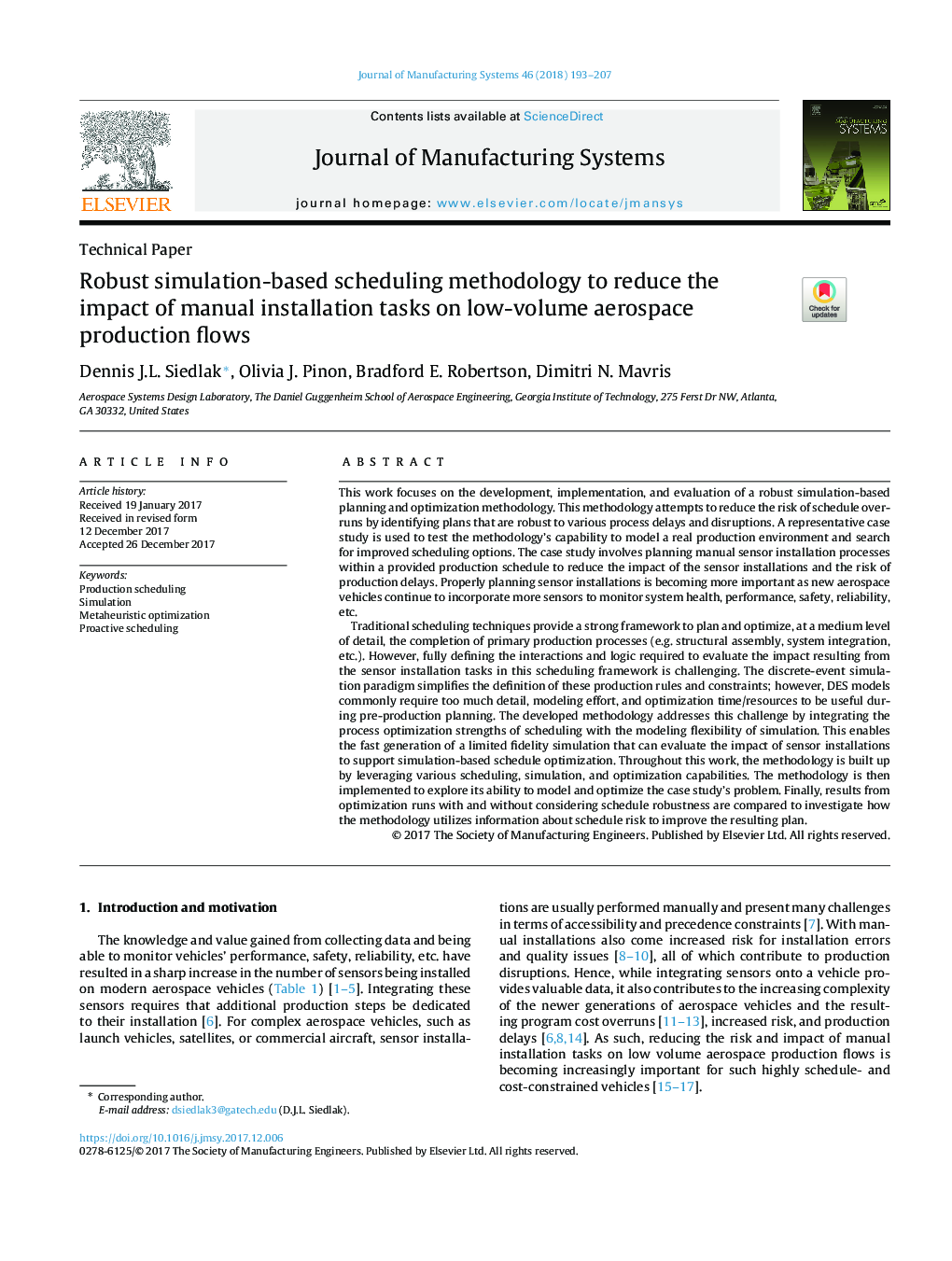| Article ID | Journal | Published Year | Pages | File Type |
|---|---|---|---|---|
| 8048369 | Journal of Manufacturing Systems | 2018 | 15 Pages |
Abstract
Traditional scheduling techniques provide a strong framework to plan and optimize, at a medium level of detail, the completion of primary production processes (e.g. structural assembly, system integration, etc.). However, fully defining the interactions and logic required to evaluate the impact resulting from the sensor installation tasks in this scheduling framework is challenging. The discrete-event simulation paradigm simplifies the definition of these production rules and constraints; however, DES models commonly require too much detail, modeling effort, and optimization time/resources to be useful during pre-production planning. The developed methodology addresses this challenge by integrating the process optimization strengths of scheduling with the modeling flexibility of simulation. This enables the fast generation of a limited fidelity simulation that can evaluate the impact of sensor installations to support simulation-based schedule optimization. Throughout this work, the methodology is built up by leveraging various scheduling, simulation, and optimization capabilities. The methodology is then implemented to explore its ability to model and optimize the case study's problem. Finally, results from optimization runs with and without considering schedule robustness are compared to investigate how the methodology utilizes information about schedule risk to improve the resulting plan.
Related Topics
Physical Sciences and Engineering
Engineering
Control and Systems Engineering
Authors
Dennis J.L. Siedlak, Olivia J. Pinon, Bradford E. Robertson, Dimitri N. Mavris,
